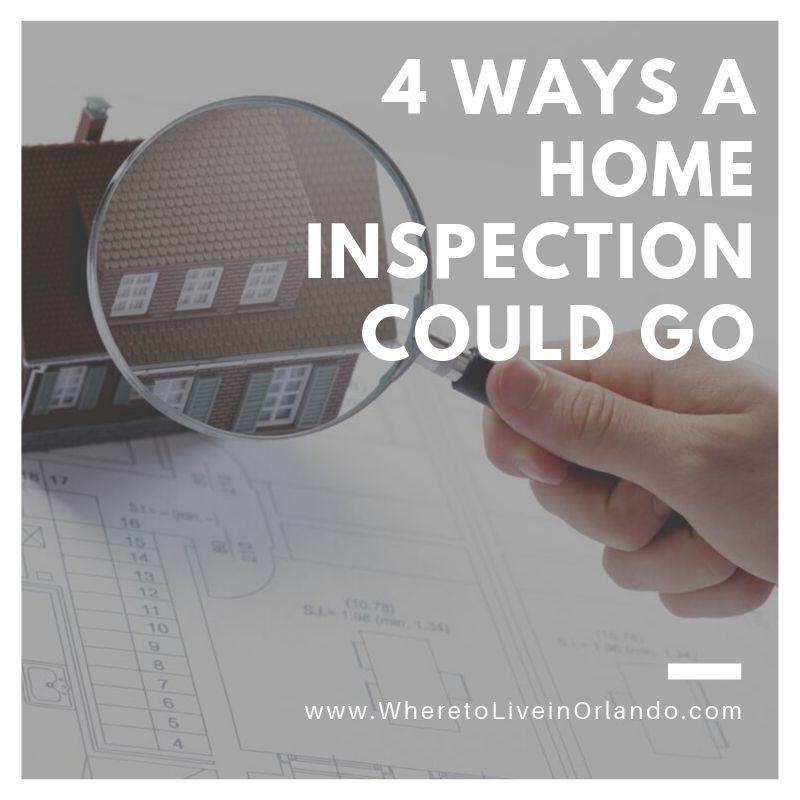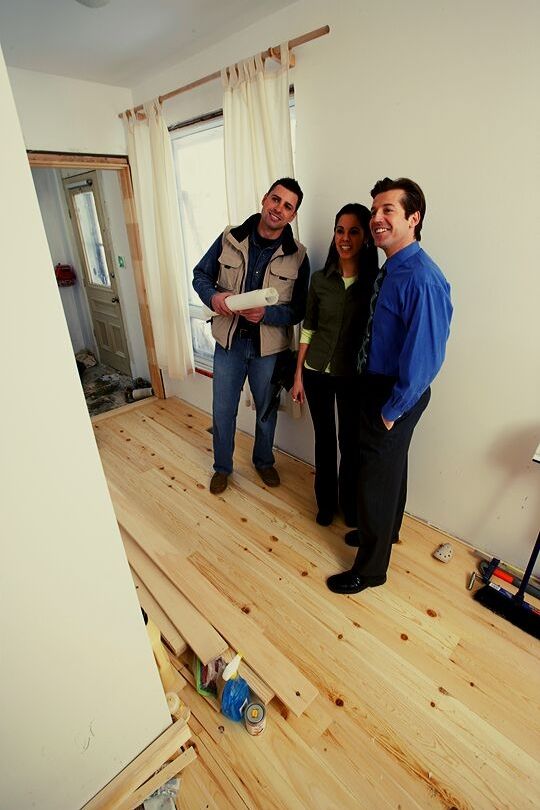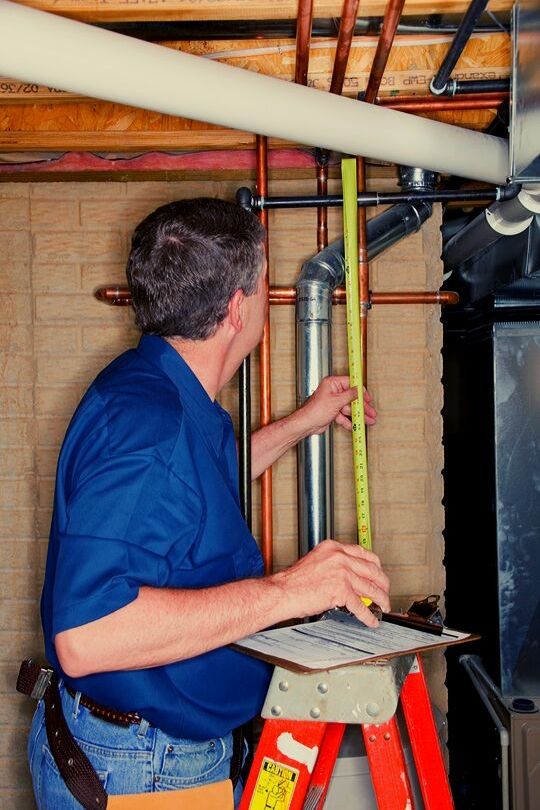What are my options as a buyer or as a seller when it comes to the inspection report and response?
A home inspection is a vital part of the home buying process but it can also be used by home sellers as a way to entice buyers into making an offer. If a home inspection has already been completed by the seller, it doesn’t necessarily mean the buyer can forgo their own inspection but it does show the buyers that the homeowners are serious about getting the home sold and have probably corrected some or all of the inspection issues before listing.
Of course, buyers should still have their own inspection performed because you just never know if the seller used a legitimate inspection company or if they were above reproach on the repairs. However, it does make for a nice incentive when looking for properties.
A home inspection can be waived completely and there may be situations where this is appropriate but for most transactions the inspection is crucial.
The home inspection should be scheduled and completed when a mutual offer has been accepted. When the buyer and seller come to signed agreements on the purchase price and the terms. The listing is now considered “Subject to Inspection” and depending on where you are in the country this could also be considered “under contract”. At this point, the seller cannot sell the property to anyone else until either the buyer backs out and/or the deal is terminated. The seller is in a legal contract to sell to a willing and able buyer should all the contingencies be satisfied.
Contingencies on the sale could include but may not be limited to:
- Home inspection contingency
- Financial contingency
- Feasibility contingency
- Neighborhood contingency
- Sale of buyers home contingency
 Not every home will have these but most will have financial and inspection contingencies. This means that the buyer must be able to obtain financing for the deal to go through unless they are paying with cash and the inspection must be approved before proceeding. But there are several ways a home inspection can go. Let’s look at the differences.
Not every home will have these but most will have financial and inspection contingencies. This means that the buyer must be able to obtain financing for the deal to go through unless they are paying with cash and the inspection must be approved before proceeding. But there are several ways a home inspection can go. Let’s look at the differences.
A home inspection is usually performed by a licensed qualified home inspector within 7 days of an accepted offer. In some areas, the inspection just needs to be scheduled within those 7 days but check with your real estate agent on the details.
The buyer should absolutely accompany the inspector throughout the property asking questions, understanding the construction of the home and learning all they can about this large investment. Home inspectors usually know a little about a lot of things but some can be experts in one or two areas such as roofs, siding, pests, etc… Ask your inspection as many questions as you can to find out the integrity of major items and how much life they may have left such as hot water heaters, furnaces and heat pumps, kitchen appliances, roofs, washer and dryers, and windows.
Related: Can the seller be present during a home inspection?
Once the inspection is completed, which can last anywhere from 1 hour to 4, the home buyer and possibly the agent will receive a report about the inspection. This can be a physical report or an electronic one depending on the inspector. Expect the report within a day or two of the inspection and some may offer the inspection report on the spot.
Go over the report with your real estate agent be sure to ask the inspector and/or your agent if you have any questions or don’t understand something. Remember, this is your home and the more you know and understand about it, the better.
Here are 4 ways the home inspection report could go with different scenarios:
- Rejection
- Approval
- Cash Off
- Ask for Repairs
The house is a money pit and should be condemned.
 This is a little extreme but sometimes an inspection report will come back showing multiple issues. Even if you assumed the home was a fixer-upper, if the number of issues seems too overwhelming you can back out of the deal right then and there, no questions asked. You don’t even have to give the seller a reason although they would probably want to know if they don’t already. However, you don’t have back out if you feel you want to tackle all the errors and issues. So with this scenario, if you plan on sticking with the house, you can either ask for repairs to be done or money off the purchase of the home. Of course, you can also accept the home as-is and then all the issues become your issues as soon as you close. This situation works best for investors, home flippers, and those that want a project. Most first time homebuyers will likely back away completely and those in the middle may ask for money off.
This is a little extreme but sometimes an inspection report will come back showing multiple issues. Even if you assumed the home was a fixer-upper, if the number of issues seems too overwhelming you can back out of the deal right then and there, no questions asked. You don’t even have to give the seller a reason although they would probably want to know if they don’t already. However, you don’t have back out if you feel you want to tackle all the errors and issues. So with this scenario, if you plan on sticking with the house, you can either ask for repairs to be done or money off the purchase of the home. Of course, you can also accept the home as-is and then all the issues become your issues as soon as you close. This situation works best for investors, home flippers, and those that want a project. Most first time homebuyers will likely back away completely and those in the middle may ask for money off.
Related: When do I get the keys to my house?
There are a few major issues and a few cosmetic ones.
“If the report comes back stating the roof needs replacing but overall is well built, the buyer may just ask for the roof to be replaced. Some sellers may request their own ‘roof certification’ where a roofer comes out, inspects the home and give a 5-year stamp on the roof. If the roofer cannot do this or the buyer doesn’t accept this, the seller can either renegotiate a new, lower price for the home to make up for the roof or replace the roof themselves before the transaction closes. Or, the seller may terminate the transaction and wait for a buyer that doesn’t care about the roof, but that’s a stretch.”- Wheat Ridge Real Estate Expert Chuck Gonzalez
There are a few cosmetic issues.
If the flooring is dated, unappealing wall paint or colors, leaky faucets or faulty switches, these are the cosmetic issues that buyers and sellers typically negotiate. One good rule of thumb for buyers is “If you ask for everything, you may get nothing”. This about what could make or break a deal. If outdated flooring is really all that’s keeping you from buying the house is it really worth it? You can always see it from both sides too… is new flooring keeping the seller from getting the best offer? These are decisions that agents and their clients need to decide so that all parties feel like they’ve had a win-win. Another good rule of thumb is to consider if an item is under $100 to fix or change, it’s not worth losing the home.
There’s nothing wrong.
 If the inspection report comes back perfectly clean, the buyer could still reject it and terminate the transaction, but this is really only if the buyer had planned on doing that anyway and now needs an excuse (because backing out of a deal without cause can a lawsuit of forfeiture of earnest money deposits). But if the buyer is satisfied with the report and wants to move forward, the report is sent back for mutual signing and agreement that nothing is to be done and the deal moves on.
If the inspection report comes back perfectly clean, the buyer could still reject it and terminate the transaction, but this is really only if the buyer had planned on doing that anyway and now needs an excuse (because backing out of a deal without cause can a lawsuit of forfeiture of earnest money deposits). But if the buyer is satisfied with the report and wants to move forward, the report is sent back for mutual signing and agreement that nothing is to be done and the deal moves on.
Money to Buyer – Lower the Price
If the seller doesn’t want to perform any repairs or do anything to the house, which could be from investors or banks or folks that just need to sell the house as-is, the buyer can either requestion money off the purchase price or credit to the buyer at closing. This gets a little trickier and needs to be handled with the escrow company.
The type of credit that a seller can give to a buyer depends on the buyers financing. Their lender may not allow for seller credit and may require the repairs done prior to closing. To get around this, the credit may be in the form of a closing cost credit and there are limits. For an FHA mortgage, the seller can pay up to 6% of the sales price of the closing cost credit for the buyer. On conventional mortgages with a 5% to just under 10% down payment, the seller can credit up to 3% and on a 10% to nearly 25% down payment, the seller can credit up to 6% closing cost credit. The amounts go up depending on the down payment, so the lender will need to be careful not to exceed the actual amount of closing costs.[CondoSales.com]
Lower the price
The buyer and seller may agree to lower the price to cover the repair. For instance, if the roof needs replacing and the seller doesn’t want to do it, they may reduce the purchase price of the home by $10,000 so the buyer can replace the roof at their expense and time after closing. Of course, the buyer will actually have to put out the money to do that unless the lender builds that into the cost of the loan with a rehab loan. If this is the case, the buyer may need more for a down payment and may have higher interest rates.
Home warranty
Another option is a home warranty. This is a great incentive for sellers to offer buyers that costs about $500-$600 and covers just about everything in a home for one year. If something should go wrong in that year, the buyers (now homeowners) pay a minimal deduction and items and appliances are repaired or fixed. So literally if you moved in and a week later the water heater blew, a simple $65 or so would pay to replace and fix the heater and cover any damage. Quite a good deal, if you ask me. Otherwise, the buyer is now out even if the inspection stated the water heater was in good working condition less than a month ago. Read More: Can you buy a home warranty on a condo?
The inspection is really the make it or break it part of a real estate deal. Most homebuyers should already be pre-approved before making an offer but the inspection is really what hangs in the balance between the deal closing or not. It’s sometimes back to the negotiation table after the inspection because each home is different and each buyer and seller is different and may want different things. The key is communication. If all parties stay in the loop and communicate what they want, chances are they will come to an agreement, but again, if not, this is the deal-breaker moment that a buyer could simply walk away.
Talk to your agent about the best way to respond to a home inspection. You may get the home you love with minimal work or you may realize it’s way more work than you want to do.
Additional Resources:
Do new construction homes need an inspection?
What happens if the inspection shows unpermitted work?
Top mistakes buyers make on a home inspection
What will the home inspector actually do?
